Navigating the world of rent negotiations can feel daunting, but it doesn't have to be! In this article, we'll guide you through crafting a thoughtful letter to your landlord that highlights your concerns while still maintaining a positive tone. With a few key strategies and an understanding of your rights, you can confidently advocate for more favorable terms. Ready to delve deeper into the art of negotiation? Read on!
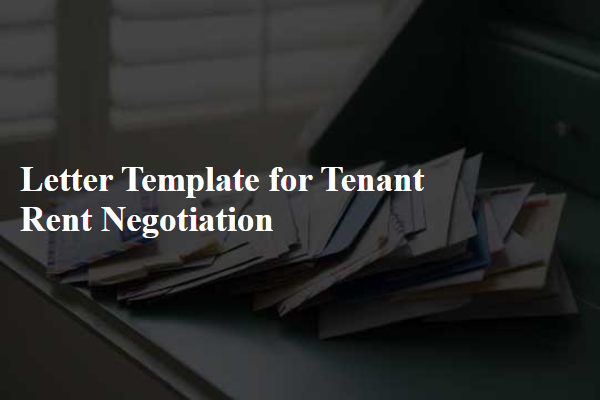
Clear subject line and introduction
Rent negotiation discussions often take place in specific contexts. Clear communication is essential. For instance, a tenant in New York City might want to negotiate rent for a one-bedroom apartment on Manhattan's Upper West Side, where average rent prices are typically around $3,000 per month. The tenant should provide a compelling rationale for the negotiation, such as being a long-term resident or highlighting market trends indicating a decline in rental prices. Details regarding local rental laws and regulations, particularly rent stabilization laws, could provide a solid foundation for the argument. A well-structured approach addressing specific issues, needs, or financial constraints could make the discussion more productive and actionable.
Articulation of current lease details
Negotiating rent can be a crucial step in maintaining a positive landlord-tenant relationship. Current lease details typically include monthly rental amounts, lease duration (often ranging from six months to one year), security deposit amounts (usually one to two months' rent), and specific terms regarding maintenance responsibilities and utilities. Additionally, rental agreements often stipulate conditions for subletting and rules governing property use, which can differ by location, such as urban areas like New York City or suburbs like Plano, Texas. Understanding the local rental market trends, including average rent increases and vacancy rates, is essential for tenants aiming to articulate their negotiation position effectively. Clear communication regarding any financial hardships or changes in employment status can also influence negotiations.
Justification for rent adjustment request
In urban areas where the rental market has seen significant fluctuations, tenants may experience varying lease terms that warrant adjustments. For instance, the average rental price in downtown Los Angeles increased by 8% over the past year, while many tenants are facing wage stagnation or job loss due to economic downturns. A request for a rent adjustment might be justified by highlighting comparable units within the neighborhood, such as a two-bedroom apartment on Maple Street that recently dropped from $2,500 to $2,200, reflecting a shift in demand and rental rates. Additionally, landlords could consider factors like property upkeep and tenant behavior, where a tenant with a history of timely payments and maintenance compliance may prompt negotiations for a more favorable rate. Moreover, local legislation such as rent control measures in San Francisco may also play a role in guiding reasonable rent adjustments, ensuring both tenants and landlords can maintain a sustainable living arrangement.
Proposal for new rent terms
Rent negotiations for residential agreements can significantly impact both landlords and tenants. In cities like San Francisco, where average rent prices can reach upwards of $3,500 for a one-bedroom apartment, tenants might seek to renegotiate their lease terms every year. Important factors such as current market rates, lease duration, and tenant's payment history often play a critical role in these discussions. That said, proposals should be made based on fair market analysis, considering comparable properties in the neighborhood. Points to emphasize might include the tenant's longstanding history (for example, over two years) of timely payments, which reflects reliability. Locations like Manhattan may see similar discussions, where rental prices fluctuate dramatically, influenced by demand, seasonality, and local economic conditions. Overall, approaching rent negotiation with clear, well-researched proposals can foster constructive dialogue and lead to mutually beneficial agreements.
Expression of appreciation and willingness to discuss
Tenants facing financial challenges can appreciate consistent communication with landlords regarding rent negotiations. Presenting a respectful request for a rent reduction fosters constructive dialogue, especially during challenging economic periods. Important factors include local housing market rates, such as those reported by the National Association of Realtors, showing average rents in metropolitan areas or economic trends affecting employment. Demonstrating willingness to meet and discuss options cultivates positive landlord-tenant relationships, enhancing mutual understanding and cooperation for sustainable living arrangements.

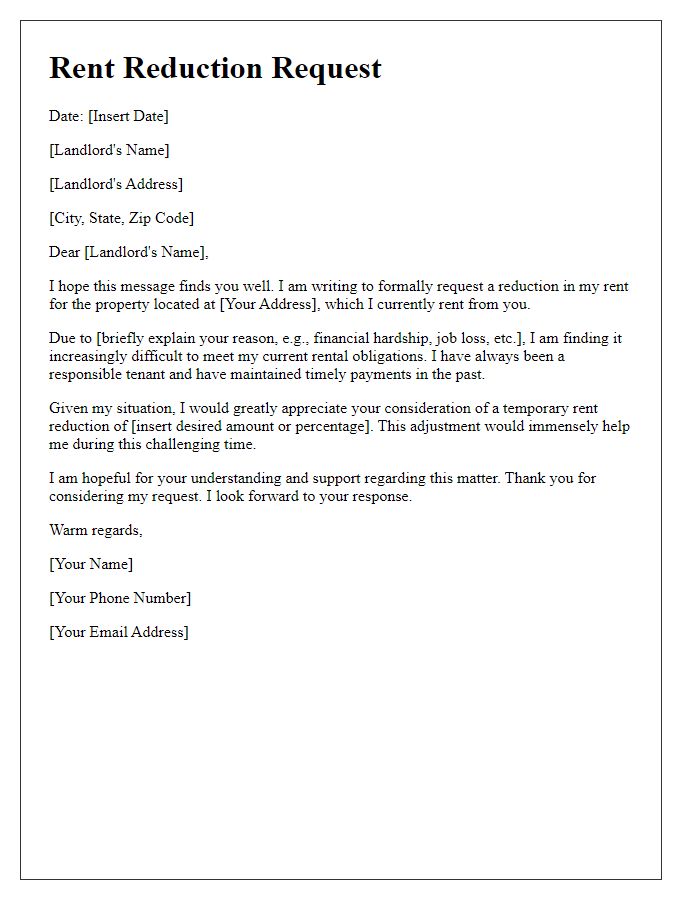
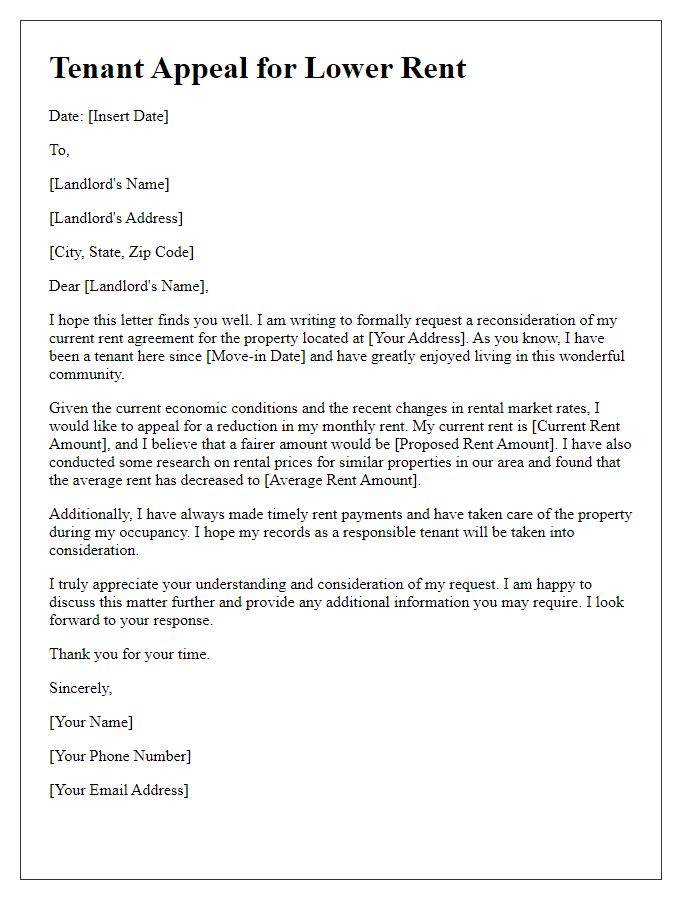
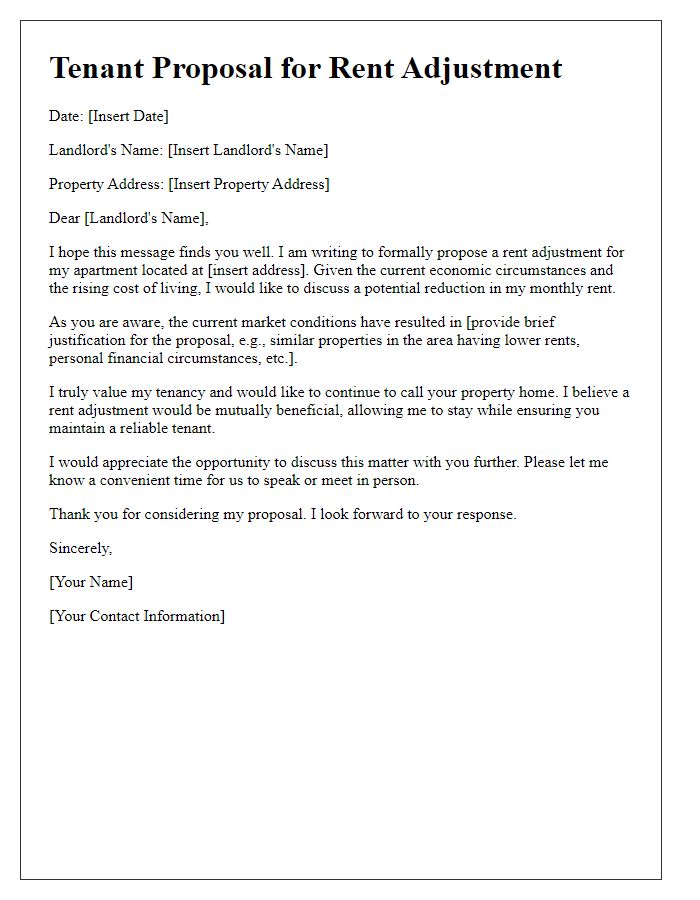
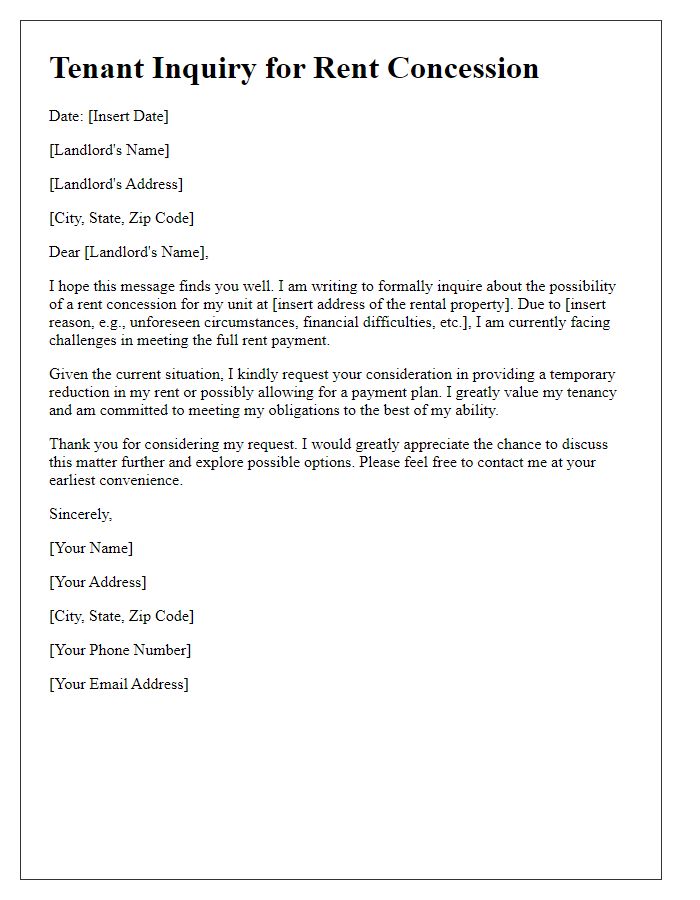
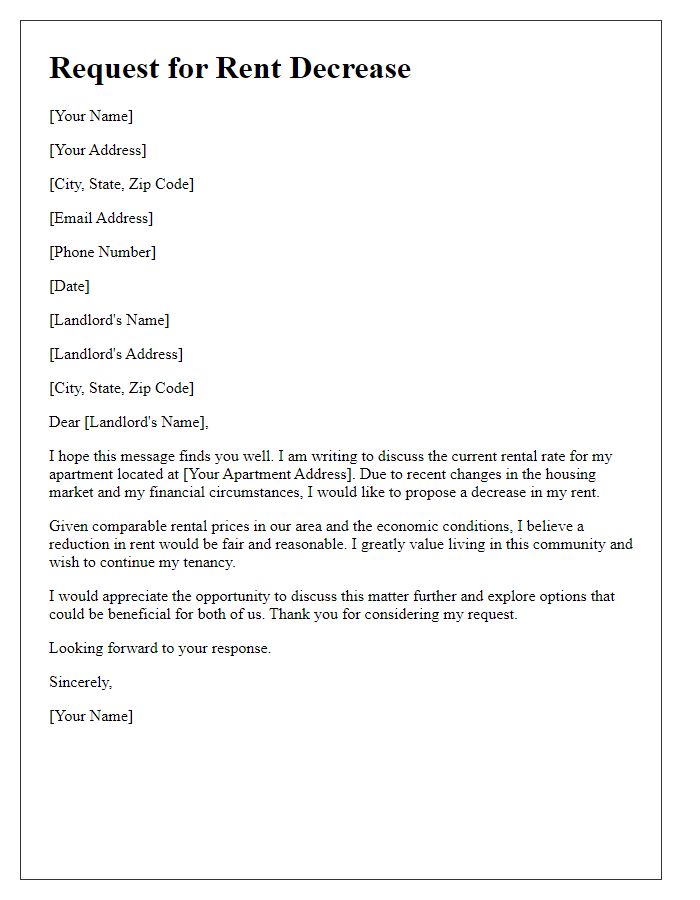
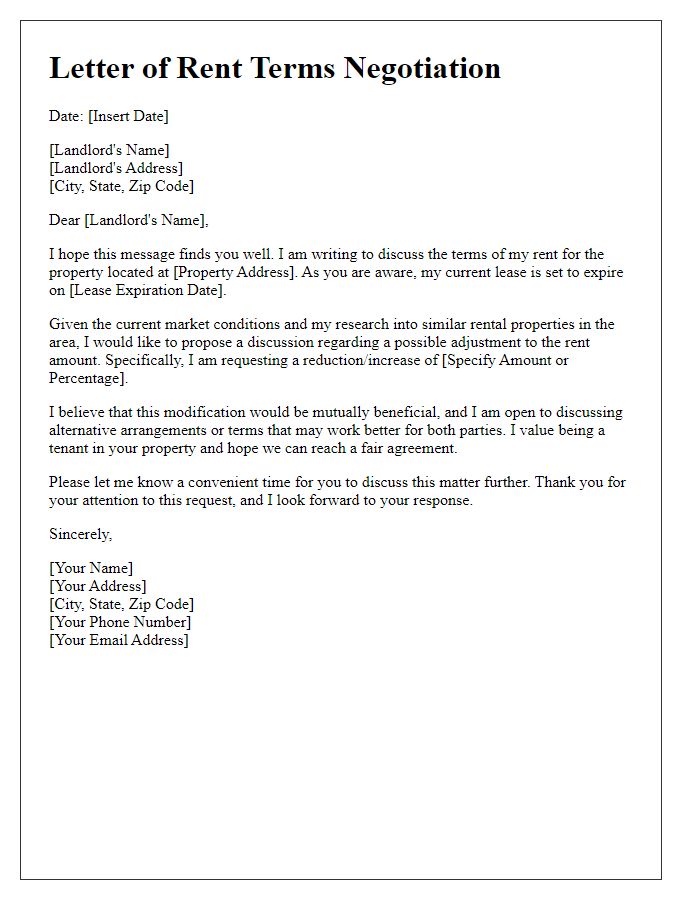
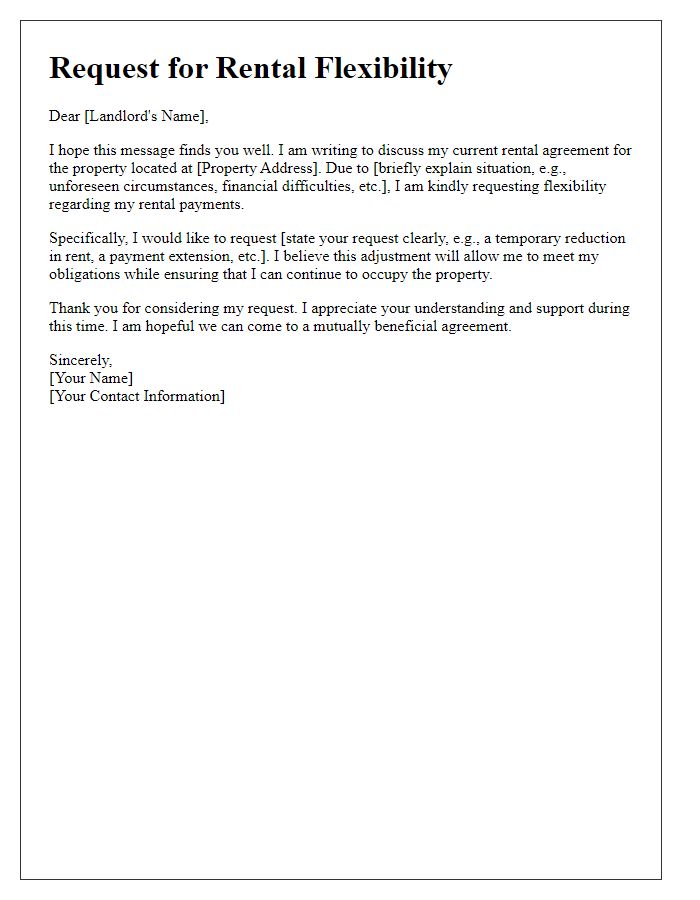
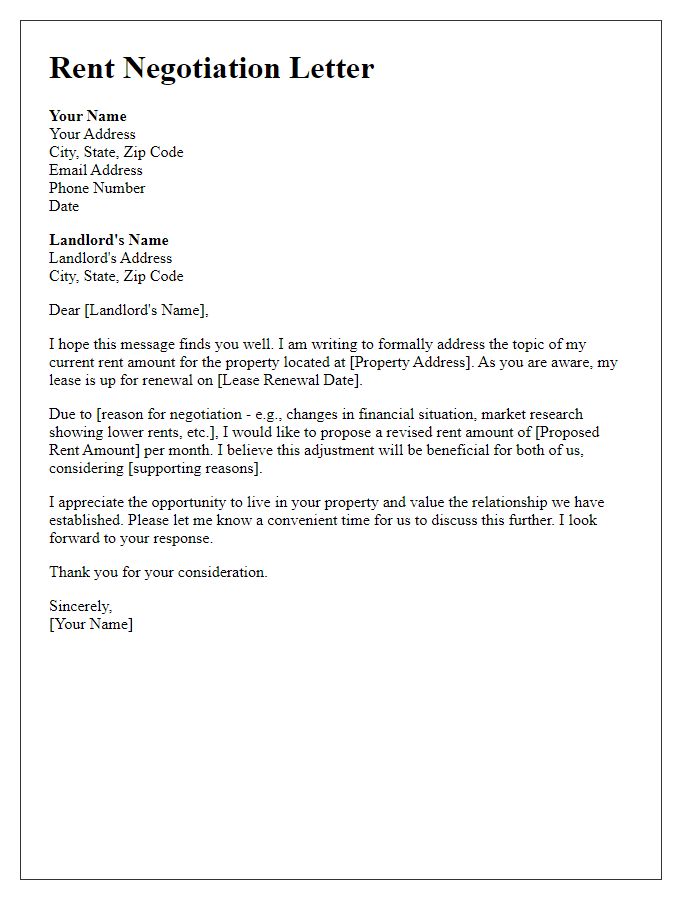
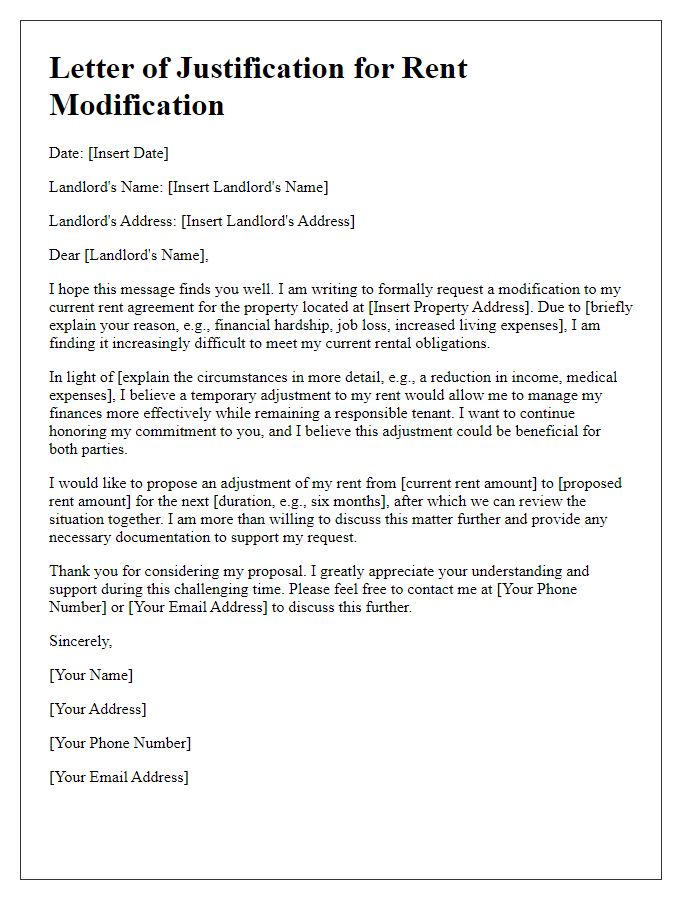
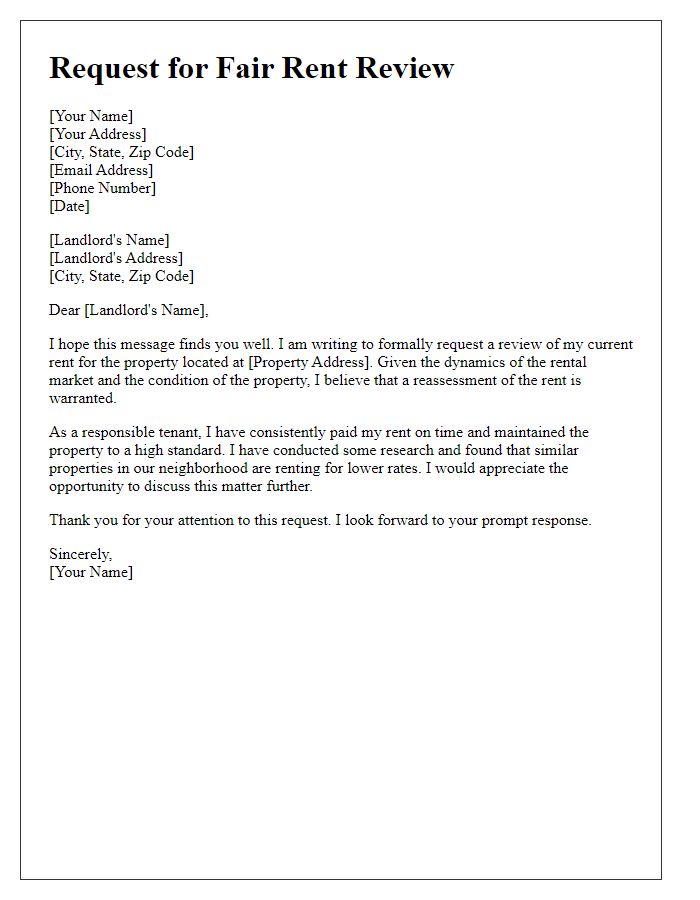


Comments